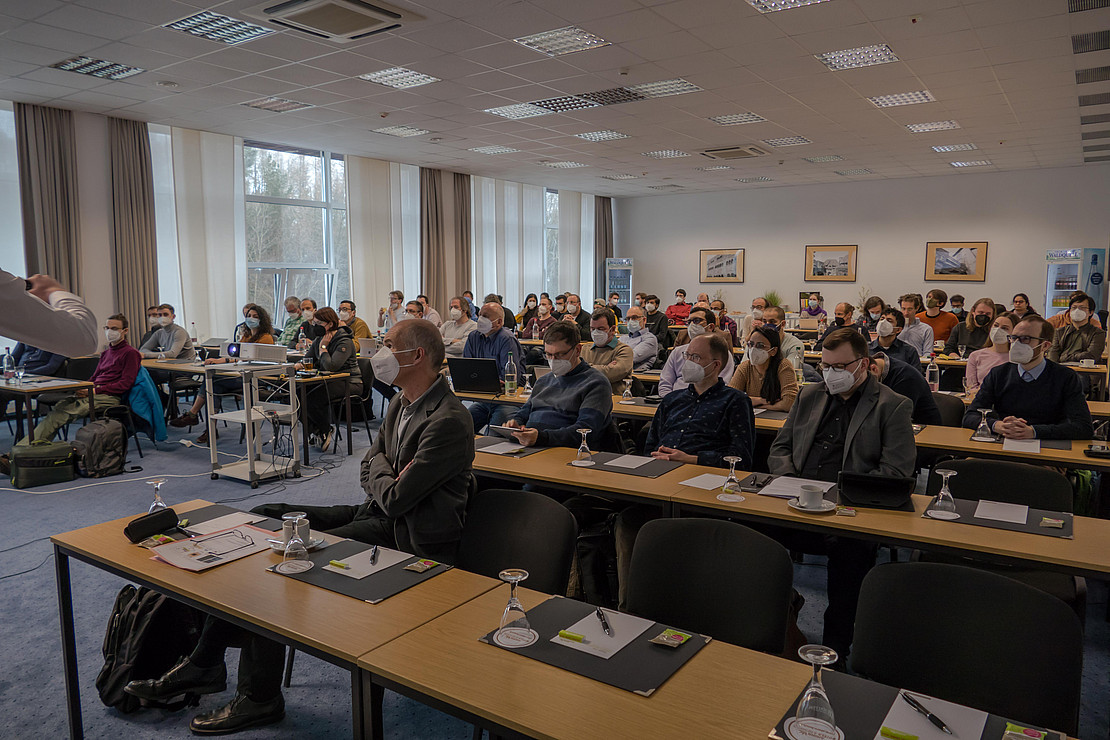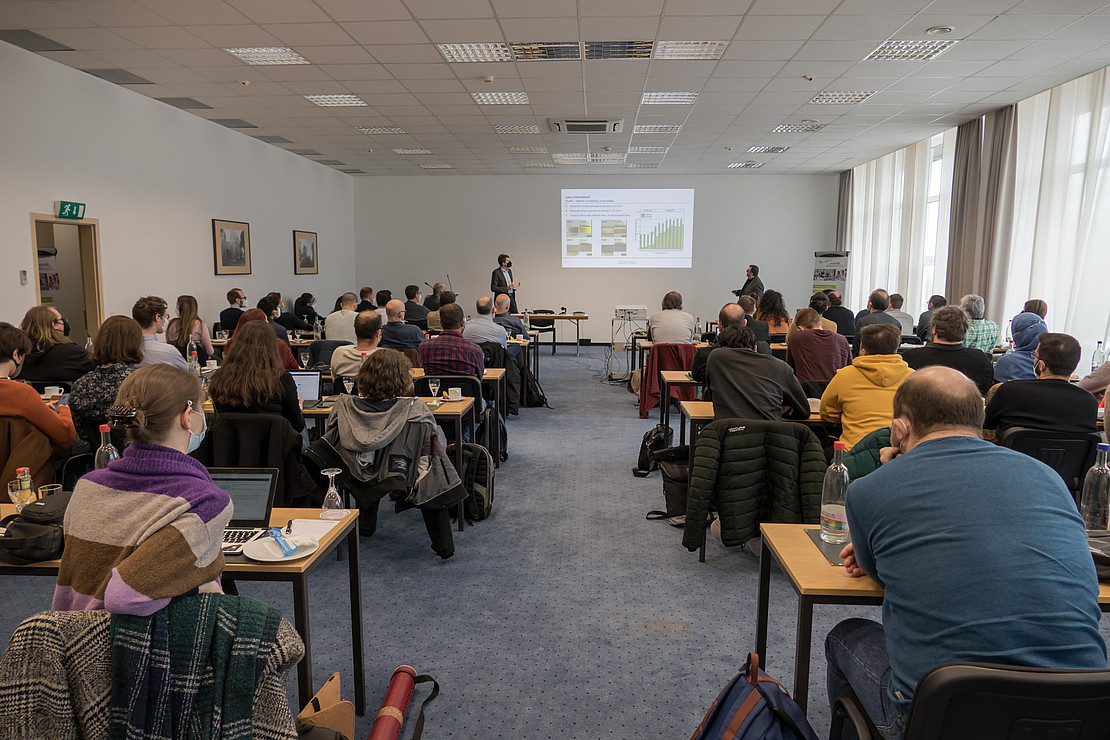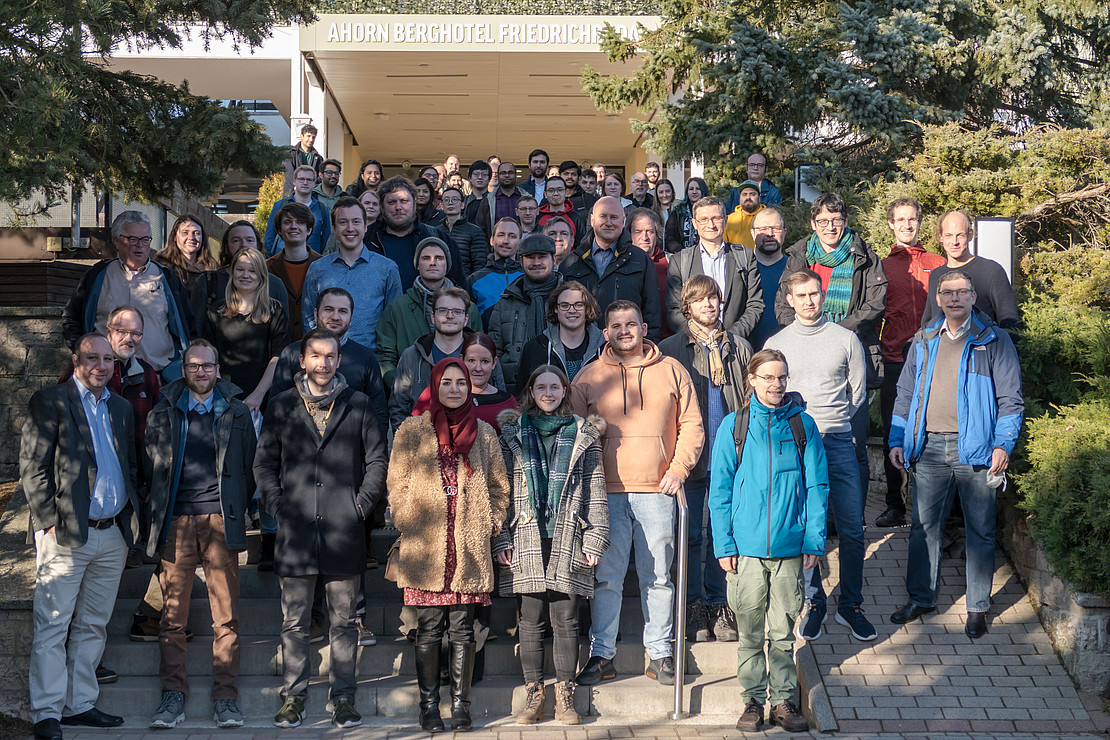CINSaT Spring Colloquium 2022
First spring colloquium in Friedrichroda after hiatus due to the pandemic in 2021.
After last years virtual spring colloquium using GatherTown software, the CINSaT invited all members and their co-workers once again to the AHORN Berghotel Friedrichroda from March 3rd to March 4th, 2022. Of course, some special preparations were necessary like an approved hygiene concept and a permission from the responsible health department. But apart from these organizational issues a meeting was possible and highly anticipated by the participants. The 2-day colloquium is the major opportunity for different CINSaT groups to get to know each other and their work and discuss questions in a broad interdisciplinary environment. This is only possible with the participation of as many groups as possible and the contributions of the participants like talks and posters.

Our speaker Prof. Reithmaier opened the colloquium and welcomed all participants. Overall, 72 participants listened to 20 scientific talks, most of them were given by doctoral candidates that showed their recent results. Two 1-hour talks were given by CINSaT membership applicants Prof. Dr. Claudia Backes and Prof. Dr. Stefan Buhmann as part of their application process. Prof. Backes gave an interesting talk about her field of research entitled “2D materials in the liquid phase” and Prof. Buhmann told us about the quantum vacuum in his talk “You want it darker – Quantum vacuum, dispersion forces, and energy transfer”. Both have completed their application process in the meantime and are now full members of the CINSaT. After listening to the talks, the participants had the opportunity for a little bit of exercise in a 2-hour guided hiking tour in the surroundings of the hotel. Afterwards the poster session started with some cool beverages and a lot of intensive scientific discussion into the late evening. In total 46 posters were presented.

The second day started with a continuation of the scientific talks. The last talk was given via Zoom by our member Prof. Monika Stengl giving an overview to the DFG-funded research training group (RTG) “Multiscale Clocks” which aims to investigate the mechanism and constituents that are responsible for creation and maintenance of the biological time. After lunch the participants were divided according to their research in six focal sessions giving the opportunity to discuss issues or problems in more detail with peers that work in the same area. The colloquium was closed by Prof. Reithmaier in the afternoon and we as organizers hope that all participants left with solutions to problems, new insights, and ambitious ideas. We will see us next year!

